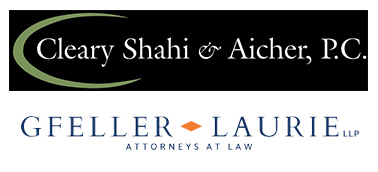May
2012
Insurance Coverage For Claimate Change – Not In Virginia – Aes V. Steadfast Insurance Company
In a noteworthy decision addressing insurance coverage for damages allegedly caused by climate change / global warming resulting from the purported negligent acts of some of the world’s largest energy companies, the Virginia Supreme Court recently held that (as alleged) such damages fall outside the coverage grant of a typical commercial general liability policy.
Specifically, last month the Virginia Supreme Court issued its opinion (on rehearing) in AES Corporation v. Steadfast Insurance Company, No. 100764 (Va. Apr. 20, 2012). In that decision, the Court reaffirmed its decision from the fall, which held that the complaint in Native Village of Kivalina v. ExxonMobil Corp. did not allege an “occurrence” within the meaning of the general liability policy issued by Steadfast Insurance Company (“Steadfast”) to AES Corporation (“AES”).
The insurance coverage dispute in AES Corporation v. Steadfast Insurance Company arose out of claims filed by the costal Inupiat Eskimo Village of Kivalina, Alaska. In 2008, the Village brought suit against numerous coal-burning utilities, a coal producer and various energy companies, including AES, for damages allegedly related to climate change. In its complaint, the Village alleged that global warming is slowly washing away the village through the melting of Arctic sea ice that formerly protected it from winter storms, and as a result, the village must relocate or be abandoned and cease to exist.
AES tendered the suit to Steadfast. Steadfast denied coverage and filed a declaratory judgment action in Virginia state court. The issue ultimately submitted to the Virginia Supreme Court was whether the Village’s complaint contained allegations that would qualify as an “occurrence,” as defined in Steadfast’s policies. The court held that the allegations did not constitute an “occurrence” because the damages allegedly caused by AES’s emissions were “reasonably foreseeable” to AES and could not, therefore, qualify as an “accident” or “occurrence” under the policy terms. AES petitioned the court for a rehearing.
On rehearing, the court reaffirmed that there was no coverage under the Steadfast policies for the Village’s claims and that Steadfast had no duty to defend AES in the suit, explaining:
For coverage to be precluded under a CGL policy because there was no occurrence, it must be alleged that the result of an insured’s intentional act was more than a possibility; it must be alleged that the insured subjectively intended or anticipated the result of its intentional act or that objectively, the result was a natural or probable consequence of the intentional act.
The complaint alleged that AES was negligent and that it “knew or should have known” that its actions would cause injury. The court found no “occurrence” reasoning that “[e]ven if AES were negligent and did not intend to cause the damage that occurred, the gravamen of [the Village’s] nuisance claim is that the damages it sustained were the natural and probable consequences of AES’s intentional emissions.” Consequently, under Virginia law, if a policyholder knew or should have known that certain results were the “natural or probable consequences of intentional acts or omissions,” there is no “occurrence” or accident under a general liability policy.
Justice Mims’ concurrence highlights the significant impact this ruling may have on future insurance coverage suits involving negligence claims. To prevail on action for negligence under Virginia law, a plaintiff must prove that the injury was the natural or probable consequence of the action. But if the policyholder knew or should have known that certain injury or damages were the natural or probable consequences of intentional acts or omissions, there is no “occurrence” and thus no coverage. It appears therefore that under Virginia jurisprudence allegations of negligence and allegations of an accident are mutually exclusive, which begs the question: Is coverage now effectively precluded for negligence under a general liability policy in Virginia?






